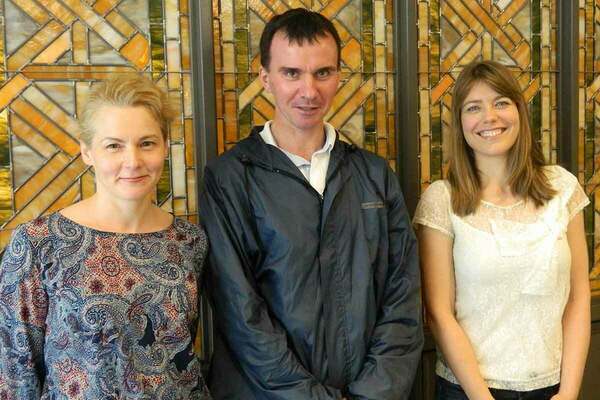
The Nanovic Institute is pleased to welcome seven visiting scholars this summer. Each scholar will work on an independently-designed research project at the Institute and have the opportunity to meet with faculty, students, staff, and administrators throughout the university. More information about the Nanovic Institute’s Visiting Scholar program, along with details about past scholars, can be found at https://nanovic.nd.edu/about/people/visiting-scholars/.
This summer’s visiting scholars include:
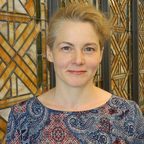
Maria Jadwiga Bloch-Trojnar
John Paul II Catholic University of Lublin (Poland)
Associate Professor and Head, Department of Celtic Studies
Bloch-Trojnar is beginning a book project on the English, Polish, and Irish languages. She aims to produce a comprehensive study of verb to noun transposition in these languages. During her visit at the Nanovic Institute, she plans to take advantage of resources on linguistic theorizing at the university library and mine the linguistic data stored there, focusing especially on data about the Irish language.

Melinda Dabis
Pázmány Péter Catholic University (Hungary)
Assistant Professor, Institute of English and American Studies
Dabis’ current research addresses the place of memory in the work the Nobel Prize-winning author Kazuo Ishiguro. Her interdisciplinary approach to the topic, which combines the theories of Douglas R. Hofstadter and the artistic work of M. C. Escher, explores the connections between literary representations of memory and memory models in the cognitive sciences.
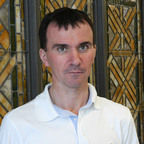
Pavlo Khud
John Paul II Catholic University of Lublin (Poland)
Ph.D. Candidate, Sociology
Ukrainian Catholic University
Director, School of Journalism
Rev. Khud is completing his doctoral dissertation, which is focused on the role of non-governmental organizations in Lviv, Ukraine. With the increasing involvement of Russia in Ukrainian politics and society, Khud believes it is of great importance for civic organizations in Ukraine to take responsibility for initiating and accomplishing public projects. His dissertation explores ways for civic organizations in Lviv to rise to the challenge.
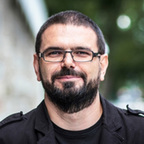
Grzegorz Maziarczyk
John Paul II Catholic University of Lublin (Poland)
Director, Institute of English Studies
Associate Professor and Head, Department of American Literature and Culture
Maziarczyk is investigating the ways contemporary novels have evolved in response to the advent of the modern publication scheme that includes a variety of both print and digital formats. During his time at Notre Dame, he plans to discuss his work with Notre Dame faculty members who specialize in contemporary fiction, especially Steve Tomasula of the English department, who has experimented with the multiple medial forms in several of his recent works.
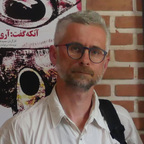
Dariusz Skórczewski
John Paul II Catholic University of Lublin (Poland)
Vice-Dean, Research and International Cooperation
Associate Professor, Department of Theory and Anthropology of Literature
Skórczewski’s research project examines how English translations of Polish literature, and the reception of Polish literature by English-speaking audiences, have shifted after the Polish democratic transition in 1989. Prior to that time, Polish literature was saturated with Christian ideals in an effort to preserve Polish identity against communist ideology. But after 1989, Skórczewski’s research suggests, Polish literature contributed to and reflected the emergence of a new Polish identity.
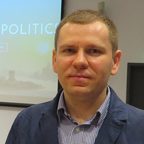
Tomasz Stępniewski
John Paul II Catholic University of Lublin (Poland)
Associate Professor, Institute of Political Science and International Affairs
Chair, Department of Eastern Studies
Stępniewski is studying the EU’s policies toward post-Soviet states. He is especially interested in Eastern Europe’s “grey zone”—regions in former Soviet states that still have strong Russian influence and military presence, such as Crimea, South Ossetia, and Abkhazia. At the Nanovic Institute, he plans to investigate whether the EU and NATO have a strategic plan for Eastern Europe and whether a good rationale can be made for revising Europe’s policies on the grey zone.
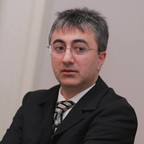
Vaja Vardidze
Sulkhan-Saba Orbeliani Teaching University (Georgia)
Rector and Professor
President, Catholic Academic Exchange Service (KAAD), Georgia
Vardidze is writing the final installment of his three-volume fundamental theology textbook. The first two books of the series, which addressed religion and Christianity, have already been published. The final book will be about the Christian church. The textbook is the first fundamental theology textbook published in the Georgian language.